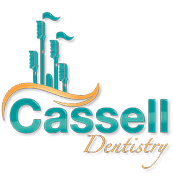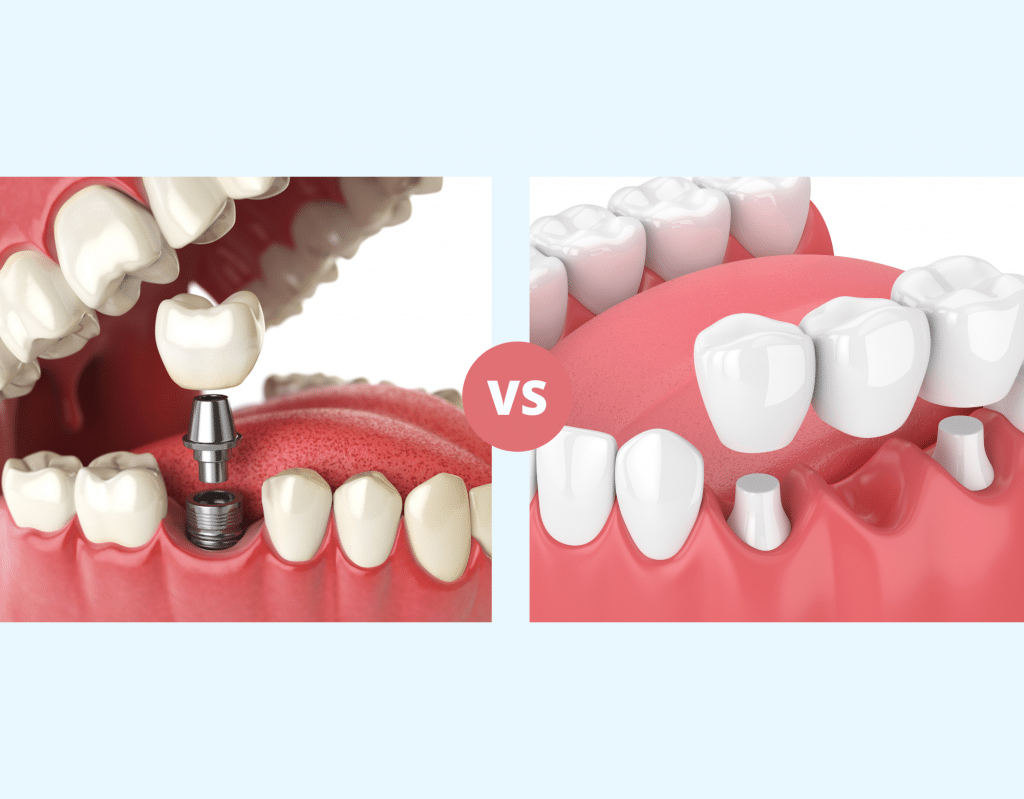Dental Implants vs. Bridges: Finding What’s Best for You
Losing your teeth can deliver a major blow to your self-confidence. It can also significantly impact the functionality of your mouth. The good news is that if this happens, you have options. Your dentist may recommend dental implants or dental bridges to help restore your smile. But here at Cassell Dentistry we can help restore your smile. We have the best dental clinic in San Diego.
Dental bridges and dental implants address many of the same issues that occur when a person has missing teeth. However, technically, these two solutions are very different from each other.
To determine which option is best, it’s important to understand what each procedure entails. Your dentist will make a recommendation based on your specific needs before moving forward. Here’s what you need to know to determine which solution will be right for you.
What is a Dental Implant?
A dental implant is essentially an artificial tooth root that is placed inside of your jawbone where a tooth is missing. It’s a permanent fixture that is surgically placed beneath your gums and bonded to your natural bone.
Your dentist may recommend dental implants when an entire tooth structure — including the bone, ligaments, and nerves — has been removed. This prevents the neighboring teeth from deteriorating and causing further damage.
A dental implant is a metal post, usually made from titanium material. Once the implant procedure is complete, it will take a few months for the new bone to grow around the implanted metal. At that point, your dentist will perform a thorough examination of the new structure to ensure that it is secure. Next, a crown will be screwed into the top of the implant and sealed to keep it in place.
Pros and Cons of Dental Implants
Just like natural teeth, a high-quality dental implant will last a lifetime as long as it is properly cared for. The biggest benefit of getting a dental implant is that it can help to strengthen the jaw and support the surrounding teeth. These implants also make it easier for the bone structures and gums to heal underneath the teeth.
While dental implants can be an effective solution, they do have a bit of a price tag. Even if you’re only getting a single tooth replaced, the procedure can cost several thousand dollars. For this reason, when a patient needs several teeth to be replaced, dentists will usually recommend a dental bridge instead of an implant.
Implants also require multiple visits to the dentist to complete and can take several months to heal.
What is a Dental Bridge?
When you have missing teeth, your dentist can close or “bridge” the gaps using what is known as a dental bridge. A bridge is attached to the remaining healthy teeth to restore the patient’s smile and functionality of the mouth. The teeth on either side of the gap will need to be shaved and shaped to ensure a proper fit.
The bridge is then placed and the teeth are capped to permanently restore to your bite and help maintain the natural shape of your face.
Pros and Cons of Dental Bridges
One of the biggest benefits of dental bridges is that they are a cost-effective solution for restoring areas of the mouth where teeth are missing. The procedure is also faster and does not require bone grafts if the patient has experienced bone loss.
The biggest concern with dental bridges is that they can put pressure on surrounding tooth structures, especially the two teeth that are attached directly to the device. Dental bridges also do not fix underlying structural issues that may result from bone loss. This means that bone loss will continue to advance, even after the prosthetic is placed.
Mixed Solutions for Dental Restoration
Your dentist may recommend a mixed approach for dental restoration if you have a significant number of teeth missing all in a row. For example, if a patient is missing all of their molars, dental implants will be used to fill in those spaces. A cap may be placed on the opposite end to form a bridge that connects from the implant post over to the healthy tooth.
For people that have an entire section of teeth missing, a dental bridge can help to restore functionality.
What Will Insurance Cover?
Most insurance companies consider dental implants and dental bridges to be high-end treatments. There is a huge difference between the costs of these two procedures. Since dental bridges are less expensive, insurance companies are more likely to pay for this treatment when compared to an implant.
If you are considering treatment options for a missing tooth, it’s best to reach out to your insurance company to understand what they will and will not cover. For most people, cost plays a huge factor in their decision about which dental restoration to move forward with. Your insurance provider will help you to get your questions answered so that you can make an informed decision about your health care.
Deciding Which Treatment is Right for You
As you decide which treatment option is right for you, you should have an in-depth conversation with your dentist. He or she will talk you through which options are best for your specific case. After performing a thorough examination, your dentist will carefully consider all factors and recommend a treatment plan accordingly.
Your dentist will also address any underlying issues with your oral health care to ensure that you do not continue to have issues later on down the line. If you’re missing teeth, it’s important to act sooner rather than later so that you can get a treatment plan in place that is specifically tailored to your needs.
Dental Implants in San Diego
Dr. Cassell, DDS, is a top dentist in San Diego, providing superior preventative, cosmetic, and restorative care. If you’ve been considering getting dental implants in San Diego, contact our highly trained team to see what we can do for you.

